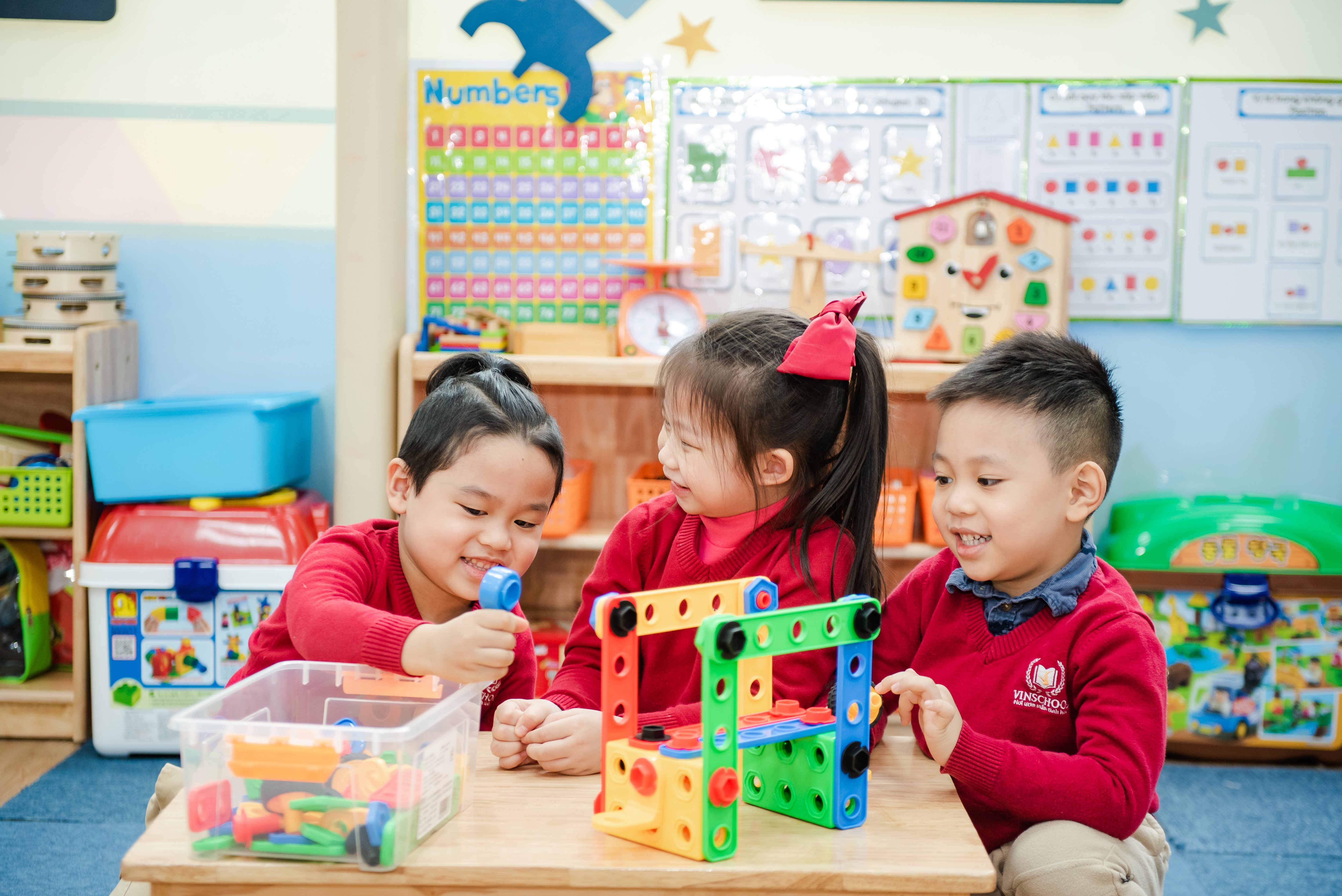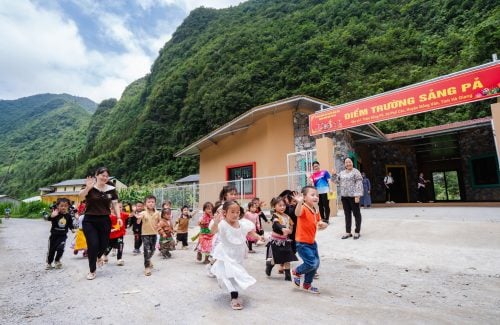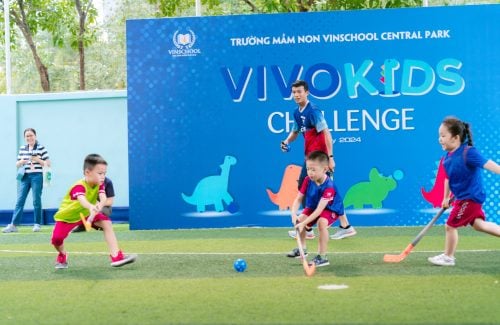Training children on independence with parents
Early independence practice for children not only contributes to the development and improvement of their personality but also has a great effect on their process of self-learning and training of other skills later on. At Vinschool Kindergarten, teachers always integrate this into experiential learning activities to train and foster independence and initiative in children. So at home, how can parents train their children's independence? Please also refer to the following suggestions of Vinschool Kindergarten!
Clean up after themselves and arrange personal corners:
Parents can guide their children to arrange furniture for their own activities, and clean their own rooms or study corners allowing them to arrange the necessary amount of supplies. This will help children learn how to manage personal belongings and develop logical thinking, and will also help parents better understand their children’s needs and preferences.
Families should plan a total home clean for the weekend, listening to children’s comments about the areas they need to clean, and discussing how to clean, tidy, or refresh their homes.
Classification of utensils/ toys:
Classifying items and toys is a very effective way to learn through games for young children. As a first step, parents are tasked with classifying toys and items by color, size, shape, material, or usage. Then they can guide their child to make a classification table according to materials, counting and comparing the number of utensils and toys. This activity not only helps children discover the rich world of materials but also helps them practice counting, analyzing and comparing skills.
Assigning age-appropriate housework:
Guiding your child to work from an early age will have many positive effects on their development. The children who form this habit will learn how to take responsibility for what they do, which is a necessary quality for them as they grow up. This also helps children appreciate the value of labour, appreciate themselves, and help others.
What can children aged 2- 4 do? Teach your child to dispose of garbage in the right place, prepare their own personal food, organize toys, or put dirty clothes in the basket. From 4 – 6 years old your child can change clothes, make beds, make tables, sweep and wipe the house, and put things in the right place. From the age of 6, parents can let the child help in the kitchen, clean the bathroom, take out the trash, do the laundry, and take care of the pets. Parents should watch when children work on their own to avoid possible hazards.
Formation of health care habits:
– Morning and evening personal hygiene routine:
Proper personal hygiene skills training will help avoid many infectious diseases such as flu, foot and mouth disease, and red eye disease, and will also help children have civilized and polite habits from a young age.
Parents can trigger the children’s interest by using toothpaste with a fragrance they like or a brush with the shape of a favourite animal. Encourage them to do it themself and give praise when they put in efforts to maintain that skill regularly. Parents can create interesting moments when doing personal hygiene so that children feel excited and treat it as an experience. Using soap to form bubbles to play when washing their hands will help get children excited and willing to do it regularly.
– Encourage and exercise with your child to improve fitness. The whole family should get together to do a 5 to 10-minute morning exercise every day. Once the children remember the exercise, parents can “empower” them to be a morning exercise instructor for the whole family or to have them pick a funky dance after the morning exercise.
Cooking with your child:
Children can help you with simple preliminary tasks such as picking and washing vegetables. This process gives children the opportunity to observe and distinguish vegetables through their shapes, colours, and names.When they are more skilful, they can practice making simple dishes such as pancakes, sunny side up eggs, or vegetable fried rice. Being involved in the making of dishes helps children have more interest in the meal, and at the same time, have a sense of nutrition for themselves.
Prepare your own personal items when going out:
Allow children to choose their own clothes when going out. Give your child a small backpack and encourage them to prepare necessary personal items such as hand towels, hand sanitizer, masks, and water bottles. When returning to school, parents should encourage them to prepare their own uniforms, books, and school supplies to go to school every day. During long trips, parents should share the trip plan with their children so that they can prepare necessary clothes and items such as warm clothes, sunscreen, and waterproof boots. This activity helps them learn how to plan and manage their own personal belongings, take responsibility for their choices, and learn about managing their own personal belongings.







